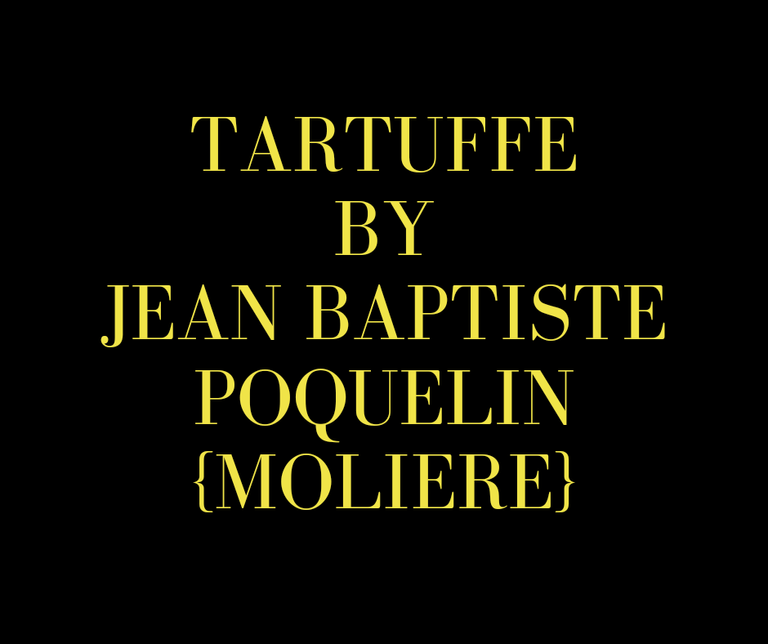BOOK REVIEW: TARTUFFE BY JEAN BAPTISTE POQUELIN (MOLIERE).

[Image designed using Canva]



[Image designed using Canva]
Tartuffe, a comedy by Moliere is about Tartuffe's deception of Orgon and his family. He pretends to be a man of piety in need for a place to stay. The play exposes 16 characters with the major characters being Tartuffe, Orgon, Elmire, Dorine, and Maraine.
The play opens with Madame Pernelle deciding to leave her son, Orgon's house because she finds their attitude immoral. At the same time she sees Tartuffe as someone with a good attitude. She is blinded by his feigned piety. Cleante and Dorine discuss on how they could convince Orgon of Tartuffe's feigned piety.
Orgon plans to marry off his daughter, Maraine to Tartuffe, but she isn't pleased with the idea because she already has a lover, Valere. Subsequently in the play, due to circumstances, Orgon banishes his son, Damis from the house, and names Tartuffe his heir.
Dorine notices Tartuffe lust after Elmire, Orgon's wife. She then plans to use this opportunity to reveal Tartuffe's real identity and then plans with Elmire. Elmire then tells Orgon to eavesdrop her conversation with Tartuffe.

As he listens, he immediately got disappointed, appears and banishes Tartuffe from his house. But at the same time, Tartuffe could cause problem for Orgon with the strongbox in his possession.
As the family discuss, a baliff, Monsieur Loyal arrives and tell them to vacate the house which is now owned by Tartuffe and also Valere tells them of a warrant for Orgon's arrest as Tartuffe has delivered the box to the King.
Just before Orgon flees, the Exempt, a Police officer and the King arrives. Suddenly Tartuffe got arrested, for the King saw through his deceit. The family rejoice and Orgon announces the preparation for Maraine's and Valere's message.


Tartuffe is a well organized and arranged comic play by Moliere. The five acts together with the plot are chronologically set up in a way that gets the reader and audience captivated. The fact that the true focus of the play is not really on Tartuffe himself, but rather on the chaos which his deception renders is what I find interesting about the novel; trying to know what his feigned piety continues to lead to.
Because of the period this play was written, one might find it difficult to understand the type of English used in the play.
From my perspective, I rate this book a 7 out of 10. It is actually a type I can recommend.
Thanks for reading.
